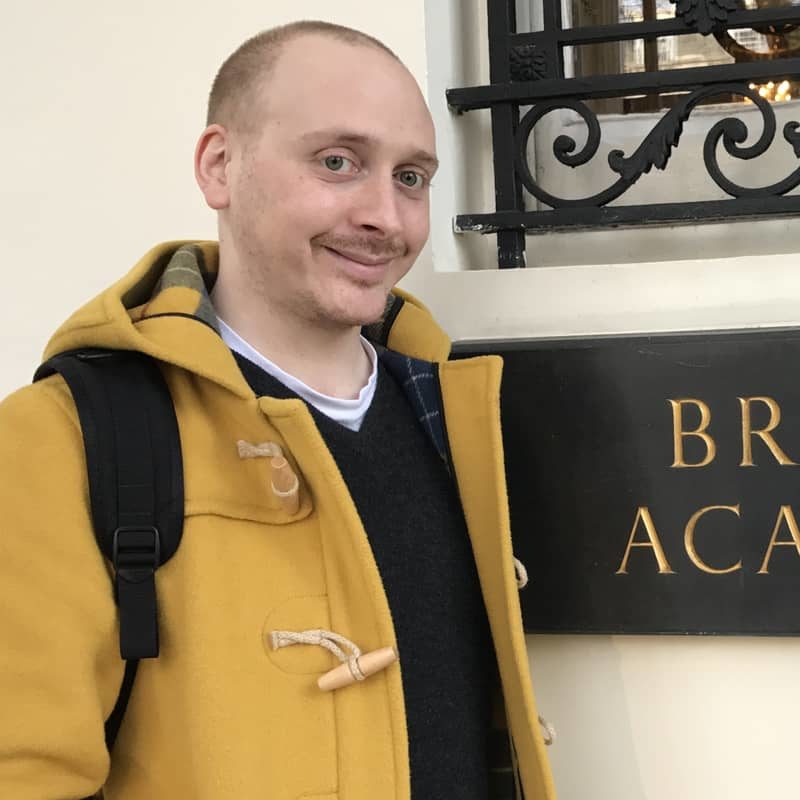Charlie is an Associate Professor in Data Science and Informatics at the University of Oxford. He is a member of the Senior Management Board at the Leverhulme Centre for Demographic Science, a Co-Investigator at the ESRC Centre for Care, and a steering group representative at Reproducible Research Oxford (as well as being a Local Network Lead for the UK Reproducibility Network). In general, his broader primary research interests — in addition to the Open Science movement — are related to:
- Sociological\Econometric Methodology (and specifically model uncertainty and machine learning)
- Social Data Science (unstructured data)
- Scientometrics (database-wide data)
- Social Inequality, Mobility and Stratification (income, education)
- Civic Technology (government procurement, transparency)
Charlie says, “With many thanks to some truly excellent co-authors, my work has recently been published in: Nature Climate Change, Population Studies, the International Journal of Epidemiology, Nature Genetics, the new Nature sub-journal Communications Biology, the American Sociological Review, Nature Human Behaviour, the International Journal of Population Data Science, Kyklos, the Journal of Housing Economics and Computational Economics”. Find the code for those papers on GitHub here.
Charlie currently teaches a Summer Lecture Series in Demographic Data Science, having previously taught Demographic Analysis, Life Course Research, Replication and Transparency in Open Social Science, Python for Sociologists, Econometrics with Financial Applications, and An Introduction to Econometric Software. He also gives guest lectures and workshops on ‘An Introduction to the Command Line’, ‘Machine Learning for Social Scientists’, the LaTeX typesetting language and co-convenes the Summer Institute in Computational Social Science at Oxford, as well as the Oxford | Berlin Autumn School in Responsible and Reproducible Research.
Charlie also supervises postgraduate dissertations on topics related to methods development and welcomes enquiries from prospective students who share his interests and appreciation for open and transparent scientific development.
Useful links
Academic Homepage: https://crahal.github.io/
Google Scholar: https://scholar.google.com/citations?user=8bd7KNgAAAAJ&hl=en
Departmental Homepage: https://www.sociology.ox.ac.uk/people/charles-rahal
GitHub Page: https://github.com/crahal
Publications
- Domingue, B., Kanopka, K., Kapoor, R., Pohl, S., Chalmers, R. P., Rahal, C., & Rhemtulla, M. (2022, September 15). The InterModel Vigorish as a lens for understanding (and quantifying) the value of item response models for dichotomously coded items. https://doi.org/10.31234/osf.io/q3djt (preprint)
- Rahal, C., Verhagen, M. & Kirk, D. The rise of machine learning in the academic social sciences. AI & Soc (2022). https://doi.org/10.1007/s00146-022-01540-w
- Mills, M.C. and Rahal, C. (2021). ‘Population Studies at 75 Years: An Empirical Review’, Population Studies, 75, pp. 7-25, DOI: 10.1080/00324728.2021.1996624. Code available here. Open Access version available here.
- Aburto, JM, Schöley, J., Kashnitsky, I., Zhang, L., Rahal, C., Missov, T., Mills, M.C., Dowd, JB., and Ridhi Kashyap1, (2021). ‘Quantifying impacts of the COVID-19 pandemic through life-expectancy losses: a population-level study of 29 countries’, International Journal of Epidemiology, 26 Sept. Interactive dashboard available here. Code available here. Media summarized by Altmetric here.
- Block, P., Hoffman, M., Raabe, I., Dowd, J., Rahal, C., Kashyap, R., Mills., M.C., (2020). ‘Social network-based distancing strategies to flatten the COVID-19 curve in a post-lockdown world’, Nature Human Behaviour, 52. Code available here. Media summarized by Altmetric here. Open Access version available here.
- Mills, M.C. and Rahal, C., (2020). ‘The GWAS Diversity Monitor tracks diversity by disease in real time’, Nature Genetetics, 52. Code library available here. GWAS Diversity Monitor available here. Open Access version available here.
- Rahal, C., (2019). ‘Tools for Transparency in Central Government Spending’, International Journal of Population Data Science, 4(4). Code library available here. Open Access available here.
- Mills, M., and Rahal, C., (2019). ‘A Scientometric Review of Genome-Wide Association Studies’, Communications Biology, 2(9). Code library available here. Media summarized by Altmetric here. Open Acces version available here here. Frontpage of The Pathologist here!
- Rahal, C., (2018). ‘The Keys to Unlocking Public Payments Data’, Kyklos, 71(2). Code library available here. Open Access version available here
- Reeves, A., Friedman, S., Rahal, C. and Flemmen, M. (2017). ‘The Decline and Persistence of the Old Boy: Private Schools and Elite Recruitment 1897 to 2016’, American Sociological Review, 82 (6). Winner of the European Academy of Sociology ‘Distinguished Publication‘ prize. Media coverage summarized by Altmetric here. Open Access version available here.
- Tropf, F., Lee, S., Verweij, R., Stulp, G., van der Most P., de Vlaming, R,, Bakshi, A., Briley, D., Rahal, C., Hellpap, R., Iliadou, A., Esko, T., Metspalu, A., Medland, S., Martin, N., Barban, N., Snieder, H., Robinson, M., Mills, M., (2017), ‘Hidden heritability due to heterogeneity across seven populations’, Nature Human Behaviour, 1 (10).
- Rahal, C., (2017) ‘Housing markets and unconventional monetary policy’, Journal of Housing Economics, 32, pp.67-80. Code library available here. Open Access available here.
- Rahal, C., (2015) ‘A Guide to the StatFact EViews Add-in’, Computational Economics, 48 (1), pp.183-188. Code library available here. Winner of EViews ‘Add-in of the quarter’ award. Open Access version available here.
